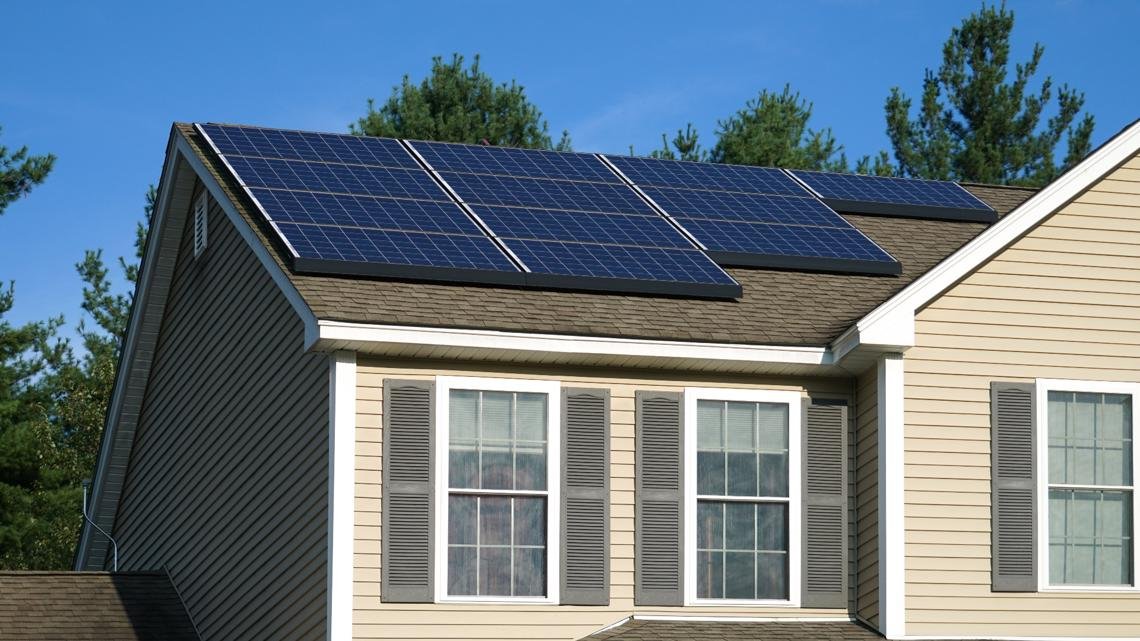Introduction
In today’s environmentally conscious world, solar energy has gained immense popularity as a sustainable and cost-effective solution for homeowners. The allure of reducing utility bills and contributing to a greener planet makes solar installations an attractive option. However, many homeowners face unexpected challenges regarding solar permits. Specifically, a common issue discussed in forums like Appraisersforum homeowner unable to proven solar is permitted is the inability to prove that their solar systems are permitted according to local regulations. This blog aims to delve deep into the significance of solar permitting, the hurdles homeowners face, and the steps they can take to ensure their solar installations are compliant.
Understanding Solar Permitting
What Is Solar Permitting?
Solar permitting is the process through which homeowners must obtain approval from local authorities before installing solar panels. This process ensures that installations adhere to building codes, zoning laws, and safety regulations. Permitting is critical because it protects not only the homeowner but also the community and the environment.
Why Is Permitting Important?
Permitting is essential for several reasons:
- Safety Compliance: Permitting ensures that solar systems are installed safely and adhere to all building codes. This compliance reduces the risk of accidents, such as electrical fires or structural failures.
- Legal Compliance: Local governments have specific regulations governing solar energy installations. Permitting ensures that homeowners comply with these rules, preventing potential legal issues in the future.
- Property Value Protection: Properly permitted installations can enhance property values. Conversely, unpermitted installations can lead to complications when selling or refinancing a home, as they may decrease the property’s marketability.
- Insurance Coverage: Many insurance companies require proof of permits to provide coverage for solar installations. Failing to present this documentation could result in denied claims if damage occurs.
- Financing Opportunities: Many solar financing options are contingent on having the proper permits. Homeowners looking to finance their solar systems may face difficulties without this documentation.
Common Challenges Faced by Homeowners
Many homeowners encounter challenges when attempting to prove their solar installations are permitted. Here are some common issues that often surface on platforms like Appraisersforum homeowner unable to proven solar is permitted:
- Lost or Incomplete Documentation: Homeowners may struggle to locate the necessary paperwork to demonstrate that their solar installation was properly permitted. This can happen due to disorganization or inadequate record-keeping.
- Changing Local Regulations: Building codes and regulations can evolve, leading to confusion about what constitutes a permitted installation. Homeowners might find themselves in a gray area, unsure of compliance.
- Installer Miscommunication: Homeowners may assume their solar installer has correctly handled the permitting process, only to find out later that the necessary steps were overlooked. This miscommunication can lead to significant headaches down the line.
- Challenges When Selling or Refinancing: When homeowners attempt to sell or refinance their homes, they may be required to prove that their solar installation is permitted. A lack of documentation can complicate these processes, leading to potential delays or loss of deals.
Steps to Prove Solar Is Permitted

If you find yourself in a situation where you need to prove that your solar installation is permitted, consider the following steps:
1. Contact Your Installer
Your first step should be to reach out to your solar installer. They should have records of the permitting process and can provide documentation to verify that the installation was performed according to local regulations. If you encounter issues, platforms like Appraisersforum homeowner unable to proven solar is permitted can be invaluable for finding advice from other homeowners who have faced similar situations.
2. Check with Local Building Departments
Visit or contact your local building department to inquire about the permitting status of your solar installation. They can often provide information about whether a permit was issued and if it is still valid. Keeping a detailed record of all communication with local authorities is crucial to ensure you have the information you need.
3. Gather Documentation
Collect all relevant documents related to your solar installation. This may include contracts, invoices, and any correspondence with your installer or local authorities. Having a well-organized file will make it easier to demonstrate that your solar system is permitted. It’s essential to keep copies of all documentation for future reference.
4. Review Local Regulations
Familiarize yourself with the local regulations governing solar installations. Understanding the specific requirements in your area can help you identify any potential gaps in your permitting process. Websites and forums like Appraisersforum often provide resources and discussions that can help clarify these regulations.
5. Consider Professional Help
If you continue to face challenges proving that your solar installation is permitted, consider consulting with a professional. This could include a real estate attorney, a licensed appraiser, or a consultant specializing in solar energy compliance. They can provide valuable insights and guidance tailored to your specific situation.
6. Document Future Installations
If you plan to install additional solar equipment in the future, make sure to document the permitting process thoroughly. This will help avoid similar issues down the line. Sharing your experiences on platforms like Appraisersforum can help others navigate their own permitting challenges.
7. Utilize Online Resources
In addition to Appraisersforum, many online resources can help homeowners understand their permitting processes better. Websites dedicated to solar energy often provide comprehensive guides and tools to help homeowners navigate the complexities of solar installation and permitting.
8. Join Local Community Groups
Engaging with local community groups focused on solar energy can provide invaluable support. These groups often share experiences and insights that can help you understand your local permitting landscape better.
The Importance of Community Support
When dealing with complex issues like proving that solar is permitted, the power of community support cannot be overstated. Online forums such as Appraisersforum provide a space for homeowners to share their experiences, seek advice, and learn from one another. Engaging with these communities can offer new perspectives and solutions that may not be immediately apparent.
Learning from Others’ Experiences
Many homeowners have successfully navigated the permitting process and can provide valuable insights based on their experiences. Participating in discussions on Appraisersforum homeowner unable to proven solar is permitted allows you to learn from others who have faced similar challenges, making the process less daunting.
Building a Network
In addition to seeking advice, consider building a network of like-minded individuals interested in solar energy. This can include local advocacy groups, environmental organizations, or even neighbors with solar installations. A strong network can help you stay informed about changes in regulations and best practices for solar energy compliance.
Attending Workshops and Seminars
Many local governments and solar advocacy organizations offer workshops and seminars on solar energy and permitting processes. Attending these events can provide you with valuable information and the opportunity to connect with other homeowners and experts in the field.
What to Do if Your Solar Installation Is Not Permitted

If you discover that your solar installation is not permitted, it’s essential to take action promptly. Here are some steps to consider:
1. Assess Your Options
Determine whether it’s feasible to bring your installation into compliance. This may involve obtaining the necessary permits retroactively or making modifications to the system to meet local codes. It’s important to understand your local regulations and what steps are necessary to rectify the situation.
2. Consult with Professionals
As mentioned earlier, consulting with professionals can provide clarity on how to proceed. They can help you understand the implications of your situation and recommend appropriate actions to rectify the issue. Professionals can also guide you in communicating with local authorities.
3. Communicate with Potential Buyers or Lenders
If you’re planning to sell your home or refinance, be proactive in communicating with potential buyers or lenders about the situation. Transparency can build trust and potentially mitigate any negative impact on the transaction. Providing documentation of your efforts to rectify the permitting issue can further enhance credibility.
4. Explore Retroactive Permitting
Some jurisdictions allow homeowners to apply for retroactive permits. If your solar installation is unpermitted, check with local building authorities to see if this option is available. While this process may require additional inspections or modifications, it can provide a path to legal compliance.
5. Document All Communication
When dealing with local authorities, it’s crucial to document all communication. Keep records of phone calls, emails, and in-person meetings. This documentation can serve as evidence of your efforts to resolve the permitting issue and may help you if disputes arise in the future.
6. Address Any Issues Promptly
If your solar system has been found to be unpermitted, addressing any issues promptly is crucial. This may involve making necessary changes to the installation or obtaining the required permits. Delaying action can complicate matters further and lead to potential fines or legal ramifications.
7. Educate Yourself on Future Installations
If you plan to expand your solar system or undertake other home improvements, take the time to educate yourself on the permitting process. Understanding local regulations and ensuring compliance from the outset can save you time and stress in the long run.
8. Stay Informed About Local Changes
Local regulations regarding solar installations can change frequently. Staying informed about these changes can help you avoid future permitting issues. Engage with community groups, local government websites, and forums like Appraisersforum homeowner unable to proven solar is permitted to stay updated on new developments.
The Benefits of Solar Energy
Despite the challenges associated with proving that solar is permitted, the benefits of solar energy are undeniable. Here are some reasons why investing in solar is worthwhile:
1. Environmental Impact
Solar energy is a clean and renewable source of power. By harnessing solar energy, homeowners contribute to reducing greenhouse gas emissions and combating climate change. Every solar panel installed represents a step toward a more sustainable future.
2. Financial Savings
One of the most appealing aspects of solar energy is the potential for significant savings on energy bills. Solar panels can reduce or even eliminate electricity costs, providing long-term financial benefits. Additionally, many states offer incentives and rebates for solar installations, further enhancing financial savings.
3. Energy Independence
Solar energy offers homeowners a level of energy independence. By generating their own electricity, homeowners can reduce their reliance on traditional energy sources and protect themselves from rising energy costs.
4. Increased Property Value
A well-installed solar energy system can increase property value. Many homebuyers actively seek properties with solar installations due to the associated energy savings and environmental benefits. However, ensuring that your installation is permitted is crucial to realizing this potential value increase.
5. Job Creation
The solar industry has seen significant growth over the past decade, leading to job creation in various sectors, from manufacturing to installation. Investing in solar energy supports this growing industry and contributes to local economic development.
Conclusion
Navigating the world of solar permitting can be daunting for homeowners. The challenges of proving that a solar installation is permitted are common, but with proactive steps and community support, homeowners can overcome these obstacles. Engaging with forums like Appraisersforum can provide valuable insights and resources, fostering a sense of community among solar energy enthusiasts.
Ultimately, the benefits of solar energy far outweigh the hurdles associated with permitting. By taking the necessary steps to ensure compliance, homeowners can enjoy the advantages of solar energy while contributing to a sustainable future. Remember, being informed and proactive is key to ensuring that your solar installation is both compliant and beneficial.
